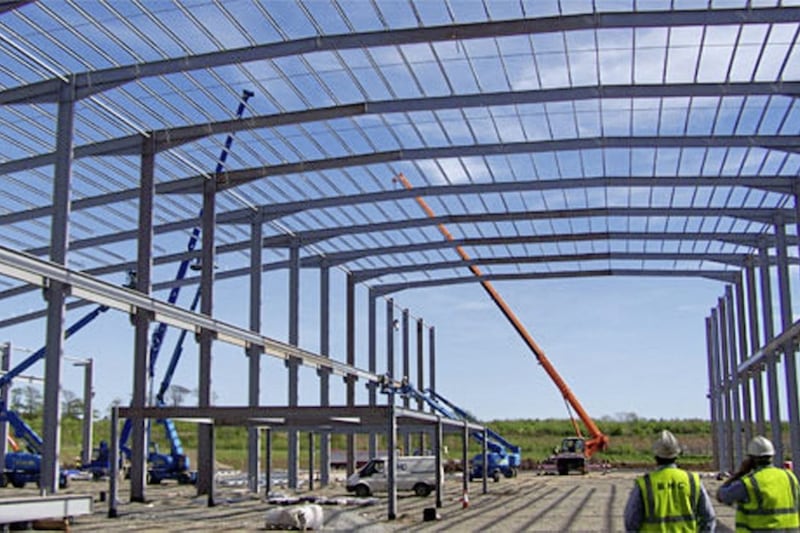More investment in the north’s chronically underfunded and crumbling water infrastructure is vital to boost flagging confidence in the construction sector, industry leaders believe.
Bosses from scores of locally-headquartered building firms (their collective annual turnover is £2.8 billion) have been giving their views to the Construction Employers Federation’s (CEF) annual survey.
And topping the industry’s priority list for 2025 is for the Stormont Executive to deal with the decades of underfunding of the region’s water and wastewater system.
An Audit Office report in November pointed to home-building in Northern Ireland having slumped to a 60-year low, in part due to restrictions on new connections to the water system.
Despite an additional £19.5 million being made in last October’s monitoring round to unlock the stalled connection of some 2,300 new-build properties to the water and wastewater network, the CEF says water’s capital budget will still be underfunded by approximately £500m against identified need.

And that, it insists, will continue to have a devastating impact on the industry’s ability to build new homes, enable businesses to grow through investment in facilities such as factories, and meet environmental challenges.
CEF chief executive Mark Spence says: “As we move towards the UK Government’s Comprehensive Spending Review, there is an opportunity for our Executive to agree a multi-year budget for the first time in over a decade and properly address the decades of underfunding of our water and wastewater network.
“Our members’ main priorities for the Executive in 2025 include them urgently agreeing a 2025/26 budget to ensure that it funds NI Water’s 2025/26 price control as set out by the Utility Regulator.
“An independent expert-led review of the governance and funding of NI Water, as recommended by the NI Audit Office, must also be undertaken so that it can meet the long-term needs of key economic drivers such as home-building.

“We must ensure that the water underfunding issue stops being the inhibitor to economic growth and an accelerant of environmental decline that it currently is.”
The CEF survey found that 35% of respondents increased their sales by at least 10% in 2024, although 30% said turnover was down at least 10% on 2023.
Some 40% said that their profit margins were worse in 2024 than 2023, and over the last year, only 65% of firms were operating at full capacity.
The industry is still in the midst of a skills challenge, and top priorities identified to address this included attracting new entrants by promoting construction careers in schools and communities; identifying skills needs and providing specific training tailored to the industry; and developing new entry-level skills programmes.
Mr Spence added:”Our survey reflects a period of increased challenge during the second half of 2024, chiefly seen through a year-on-year drop in turnover and profit margins at a level not been seen since the first half of 2021.
- Northern Ireland Water needs correct funding – Utility Regulator chiefOpens in new window
- Housing developments unable to be approved due to poor water infrastructure, critical report findsOpens in new window
- Waste water system ‘at breaking point’ due to underfunding, MLAs toldOpens in new window
- The building of 37,000 properties in pre-plan stage ‘at risk’ because of underinvestment in water and sewerage infrastructureOpens in new window
“Coupled with a drop of 20% in the number of firms reporting full or almost full order books, there is clear evidence of a fragility in the market which many in the sector attribute to a declining pipeline of public sector works and the underfunding of enabling infrastructure such as water.
He said the Executive must reflect on how far its budget can actually deal with the social, economic and environmental challenges that currently exist.
“While year-on-year increases in the draft allocations for the departments of Infrastructure, Communities, Health and Education are to be welcomed, much of this is accounted for through already ringfenced flagship projects such as the A5, Strule Shared Education Campus and the Mother and Children’s Hospital.
“Each of these projects stand on their individual merit and the industry fully backs their delivery, but the draft allocation to the Department for Infrastructure once again makes it impossible for the Department, and wider Executive, to allocate NI Water’s full price control need of over £600m of capital investment in the coming year.”







